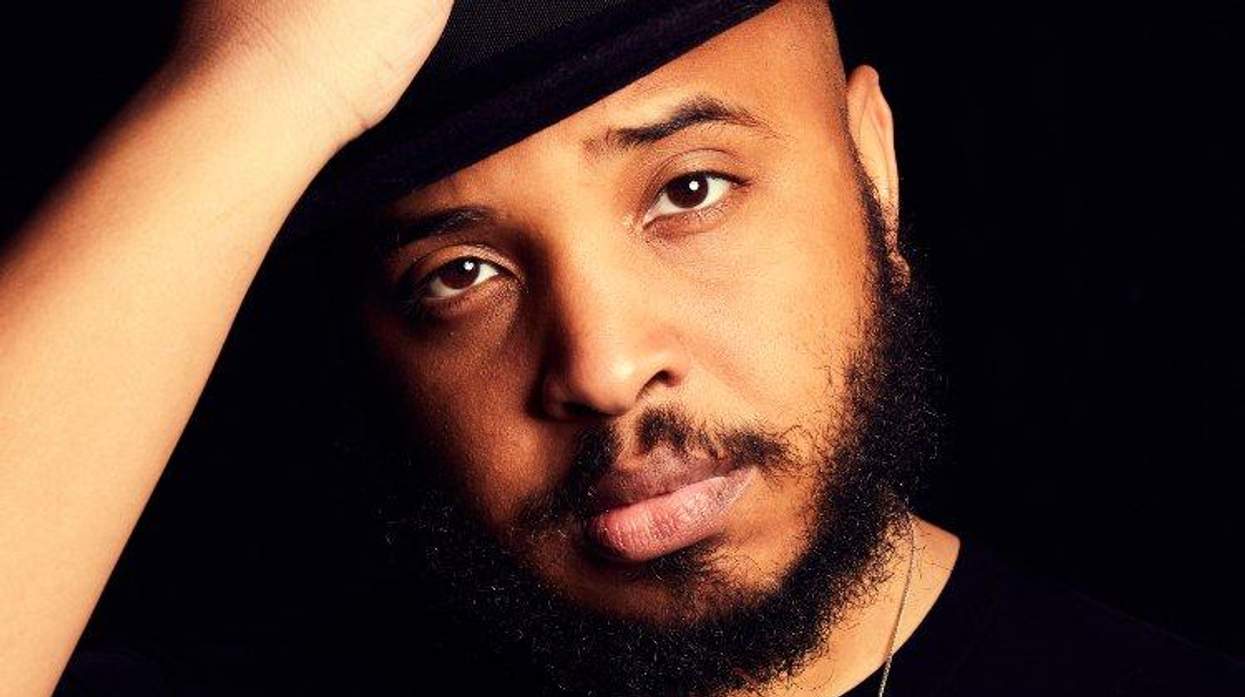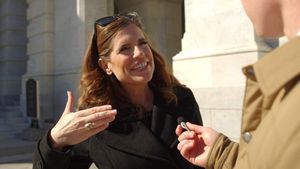Being queer is now being recognized as a superpower, says Justin Simien, the writer-director-producer behind Dear White People and Bad Hair.
Simien received the Point Foundation's Horizon Award at the organization's virtual Los Angeles gala over the weekend. The foundation is the nation's largest scholarship fund for LGBTQ+ college students, supporting 134 of them in the 2020-2021 academic year, the most in any year to date. Many of the students have lost the support of their families or communities simply because of who they are.
Simien noted that when he was attending Chapman University in Orange, Calif., where he graduated in 2005, he was struggling to come out, even to himself. Now the Point Foundation and similar organizations are showing that being queer is something positive, he said.
"Now being queer is what makes you special -- it's like a superpower," Simien told The Advocate in a post-event interview.
While he's happy to have received the honor, he's more interested in recognizing the foundation's work than in any recognition for himself. "It's about the work that the groups are doing," he said. "Helping queer people is the future."
During the virtual gala, he praised the Point Foundation for creating a scholarship program specifically for LGBTQ+ Black, Indigenous, and other people of color, which was announced in June. In college and in his entertainment career, he said, he's often been the only Black queer person in the room, and while there's been progress, there is some distance to go.
"Point Foundation is part of the solution," he said. "That's why I am especially proud to be honored."
His film and TV series Dear White People follow a group of Black students at a predominantly white Ivy League college. He's working on the fourth and final season of the series for Netflix. While filming with COVID-19 safety protocols in place is challenging, he predicts the finished product will bring viewers something special.
"I hope they're surprised," he said in his Advocate interview. "I try to reinvent the show every season." Filming is likely to wrap by the beginning of next year, he said, while the premiere date has not been set. He's glad the show has helped start conversations about racial issues, he added.
His feature film Bad Hair is now streaming on Hulu. It's a horror film centering on a Black woman who gets a weave in the late 1980s to conform to society's standards of beauty, only to find that evil lurks in her locks. "It was a labor of love," he said, and he hopes viewers will "have fun with it" while also being encouraged to explore their ancestry. Elle Lorraine, who stars in the film, presented him with the Point Foundation honor.
As for upcoming projects, he said, he has a couple of exciting things on tap, but he can't talk about them yet.
The Point Foundation also honored actor-director Joe Mantello, who received the Legend Award, presented by Jim Parsons. Parsons starred in the 2018 Broadway production of The Boys in the Band and in this year's Netflix film adaptation, both directed by Mantello. His costars in the play and film spoke in video tributes to Mantello as well.
All the actors in Boys are out gay men, a definite change from 1968, when it premiered off-Broadway, Mantello observed. The original production featured a mix of gay and straight actors, but most of the gay ones were closeted.
That first production of the play, written by Mart Crowley, marked the first time many theatergoers saw gay and bisexual men portrayed onstage. But over the years LGBTQ+ audiences have had mixed reactions to it, with some saying it depicts its characters as self-loathing and in a generally negative light.
In his acceptance speech, Mantello acknowledged that all the men in the story have some degree of self-hatred and shame, but nonetheless they have formed a community. Seeing The Boys in the Band now, he said, is a reminder of how far we've come.
So is the existence of the Point Foundation, which was unimaginable in 1968, Mantello observed. "The reality that today more young people find an accepting community of support as they pursue their education is a fact that can never, ever be taken for granted. ... If we can make one young LGBTQ person's life a little easier, we have that obligation," he said.




































































Charlie Kirk DID say stoning gay people was the 'perfect law' — and these other heinous quotes